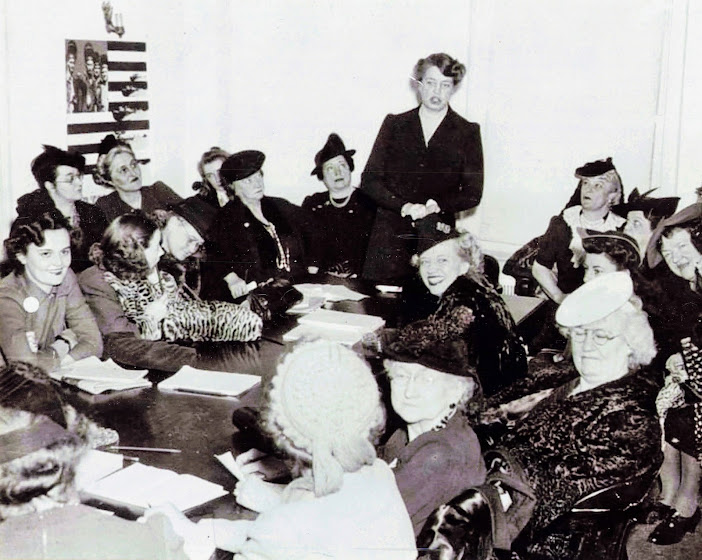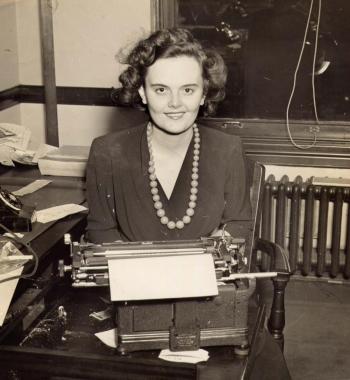Today the NPC administers the annual Ann Cottrell Free Animal Reporting Award created by Free’s family in 2005. The author of three books featuring animals, Free died in 2004. In addressing the Board of Governors about establishing the award, Free's daughter Elissa Free, an NPC member, pointed out that her mother got her start in Washington journalism working on the 12th floor of the National Press Building, just below the Club. She traveled the world and covered political leaders and big stories of the day, but her reporting on animal conditions at an FDA facility took her career in another direction, writing as one of the early voices for protecting nature and the environment. Elissa Free said her mother felt that her legacy was the contributions she made in reporting on animal welfare.
Library of Congress has posted papers of pioneering woman journalist Ann Cottrell Free

The papers of Ann Cottrell Free, a National Press Club member known for her advocacy of women journalists as head of Eleanor Roosevelt’s Press Conference Association as well as her devotion to animal rights, have been processed and are ready for use by researchers at the Library of Congress. Described on “Unfolding History,” the blog of the Library’s manuscript division, the papers expand study of Washington women journalists in the World War II era when they fought their way into a male-dominated occupation.
Free, a graduate of Barnard College, started attending Eleanor Roosevelt’s women-only press conferences in 1941 as the first woman Washington correspondent for Newsweek and chaired the group in 1943. It disbanded in 1945 after Franklin D. Roosevelt’s death. Set up by Eleanor Roosevelt in 1933 to encourage women reporters to write about topics overlooked by male competitors, the conferences helped women journalists gain employment. Describing them in "The Eleanor Roosevelt Encyclopedia," Free said they provided “visibility to both the First Lady and the women covering her.”
Free was a member of the Women’s National Press Club, an organization for Washington women journalists that changed its name to the Washington Press Club after the NPC, once a male-only bastion, accepted women as members in 1971. The Washington Press Club then began accepting men journalists as members, but it eventually folded into the NPC, in 1985, and Free became a member of the National Press Club. She described that transition to the NPC that basically did away with the original concept of a women-founded press organization in an NPC Oral History project in 1992, saying "the whole deal was a financial situation where our dues would not be as – go up a lot – because we’d been paying very meager dues. And we continued with our meager dues."
Born in Richmond, Virginia, Free got her start in journalism with school publications and then the Richmond Times-Dispatch in 1936. In 1946 Free became a special correspondent for the United Nations Relief & Rehabilitation Administration, reporting on famine in China and other postwar conditions throughout the world. Back in Washington in the late 1950s, she turned her attention to environmental and animal rights issues. Her reporting on the mistreatment of lab animals helped attain passage of the federal Humane Slaughter and Animal Welfare Acts. She also was instrumental in establishing the Rachel Carson National Wildlife Refuge in Maine.

Her family also gave the NPC Free’s well-used typewriter. The Club plans to display it in the president’s office along with Helen Thomas’s typewriter as tributes to Washington women journalists who forged a path for others to follow.
Dr. Maurine Beasley, professor emerita at the University of Maryland-College Park Philip Merrill College of Journalism, is an NPC member, former Washington Post reporter and author who is a co-author of "The Eleanor Roosevelt Encyclopedia," to which Ann Cottrell Free contributed.
